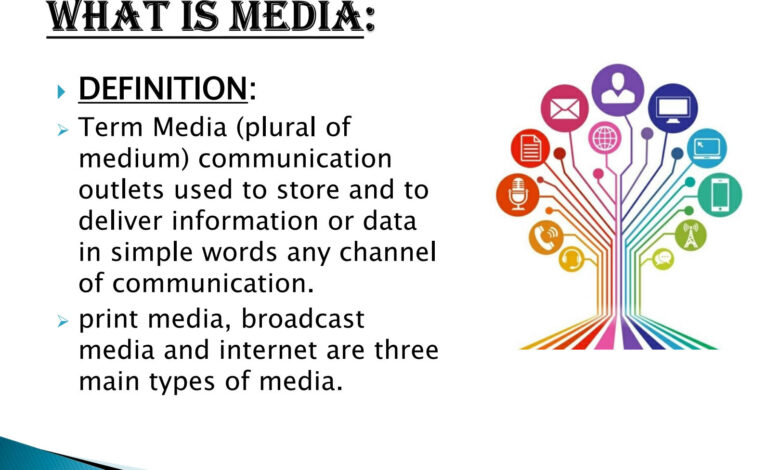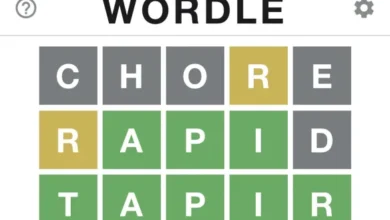What is Media? A Comprehensive Guide to Understanding Media in the Modern World

In today’s fast-paced world, media plays an essential role in shaping our opinions, spreading information, and connecting people across the globe. But what is media exactly? Media encompasses various tools, platforms, and communication methods that allow people to share ideas, news, entertainment, and more.
In this article, we’ll explore the different types of media, their roles in society, and how they have evolved. By the end, you’ll have a clear understanding of what is media and why it is so important in our daily lives.
What is Media?
Before diving deeper, let’s start with the basics: what is media?
Media refers to any means of communication that allows people to receive, share, or create information. It includes everything from traditional newspapers and radio broadcasts to digital platforms like social media and news websites. The word “media” is derived from the Latin word medium, meaning “middle” or “intermediary,” because media acts as a bridge between individuals and the information they consume.
At its core, what is media can be summarized as the various channels and methods used to deliver messages to large audiences. Whether it’s informing the public about current events, entertaining people, or influencing opinions, media is everywhere, shaping how we understand the world.
Types of Media
Understanding what is media involves exploring its different forms. Media can be divided into several categories, each with its unique characteristics and purposes. Let’s take a look at the main types of media.
Print Media
Print media is one of the oldest forms of communication. It includes:
- Newspapers
- Magazines
- Books
- Pamphlets
Print media has been a reliable source of information for centuries, providing in-depth news reports, editorial opinions, and entertainment content. Although the rise of digital media has reduced the popularity of print media, it remains an essential form for certain demographics, especially for in-depth journalism and academic publications.
Broadcast Media
Broadcast media refers to the distribution of audio and visual content to a wide audience via radio or television. It includes:
- Radio broadcasts
- Television news and shows
- Podcasts
Broadcast media allows for real-time communication and is a popular source for breaking news, entertainment, and educational programs. Its ability to reach large audiences quickly makes it a powerful tool for information dissemination.
Digital Media
Digital media is any form of media that is stored and transmitted electronically. It includes:
- Websites
- Blogs
- Online news outlets
- Streaming services (like Netflix, and YouTube)
Digital media has revolutionized the way people consume content. With the rise of the internet, people can now access information instantly from anywhere in the world. Digital media has democratized content creation, allowing individuals and small organizations to reach audiences globally.
Social Media
Social media is a subset of digital media, but its impact is so significant that it deserves its category. Social media platforms include:
- TikTok
Social media allows users to create and share content in real-time, fostering interaction and engagement among users. It has changed the way people communicate, making it easier for anyone to have a voice, connect with others, and spread information quickly.
The Role of Media in Society
Now that we understand what is media, let’s explore its role in society. Media is a vital component of modern life, influencing everything from politics to culture. Here are some key functions of media in society:
- Information Dissemination
One of the primary roles of media is to provide information. News outlets report on current events, educate the public on important issues and help people stay informed about what’s happening in the world. Without media, it would be challenging to access the knowledge needed to make informed decisions.
- Shaping Public Opinion
Media plays a significant role in shaping public opinion. Through news stories, editorials, and even entertainment content, media can influence how people think about various topics, from politics to social issues. By framing information in a certain way, media outlets can impact the way the public perceives certain events or ideas.
- Entertainment
Entertainment is another essential function of media. From television shows and movies to music and video games, media provides various forms of entertainment that help people relax, have fun, and connect with others.
- Education
Media is also a powerful educational tool. Educational programs on television, podcasts, and online courses allow people to learn new skills, acquire knowledge, and stay informed about academic and scientific advancements.
- Cultural Representation
Media is a mirror of society and its culture. It helps preserve traditions, highlight new trends, and represent diverse voices. Media brings cultures from around the world into our homes, allowing for a deeper understanding of different ways of life.
The Evolution of Media
To fully grasp what is media, it’s important to look at its evolution over time. Media has come a long way from its earliest forms to the complex, digital ecosystem we have today.
Early Media: Print Revolution
The first significant evolution in media came with the invention of the printing press in the 15th century. Before that, books and written texts were copied by hand, making them rare and expensive. The printing press made it possible to produce books and newspapers on a larger scale, paving the way for mass communication.
Radio and Television: The Age of Broadcast
The 20th century saw the rise of broadcast media with the invention of radio and television. Radio became the first medium to provide real-time news, music, and entertainment to the masses. Television followed, bringing visual content into homes, and further expanding the reach of media.
The Digital Age: The Internet and Social Media
The internet revolutionized media by enabling instant access to information. With digital media, anyone can publish content, and users can access news, entertainment, and educational materials on demand. Social media has added a new layer to digital media by making it interactive and participatory.
How Media Impacts Our Lives
What is media without understanding its impact on our daily lives? Media has a profound influence on the way we think, behave, and connect with others. Here are some key ways in which media shapes our lives:
- Information Sharing
Media makes it easier to share information globally. Whether it’s news about a natural disaster or updates on a new scientific discovery, the media ensures that information reaches people quickly and efficiently. The ability to access real-time information helps individuals stay connected and make informed decisions.
- Shaping Public Opinion
Through news stories, social media posts, and opinion pieces, media can shape the way we view the world. Public opinion is often influenced by how media outlets present issues, which can affect everything from elections to social movements.
- Entertainment
Entertainment is a major aspect of media, providing us with movies, music, games, and more. Media gives us access to a wide range of content that helps us relax, laugh, and enjoy our free time.
- Social Interaction
Media, especially social media, has transformed the way we communicate with others. It allows us to connect with friends and family, share our thoughts, and engage in conversations about topics that matter to us.
The Future of Media
As technology continues to advance, the future of media looks promising. With the rise of virtual reality, augmented reality, and artificial intelligence, media will become more immersive and personalized.
The growing trend of user-generated content will also continue to shape the future of media, giving individuals more control over the media they consume and create. The lines between creators and consumers are becoming increasingly blurred, as social media platforms allow anyone to become a content producer.
The future of media is exciting, with endless possibilities for new forms of communication, entertainment, and information sharing.
Conclusion
In summary, what is media? Media is the collective communication outlets that inform, entertain, and connect us with the world. From print newspapers to digital platforms, media is a powerful force that shapes society and influences the way we live.
As media continues to evolve, its role in our lives will only grow, making it more essential than ever to understand what is media and how it impacts the world around us.





